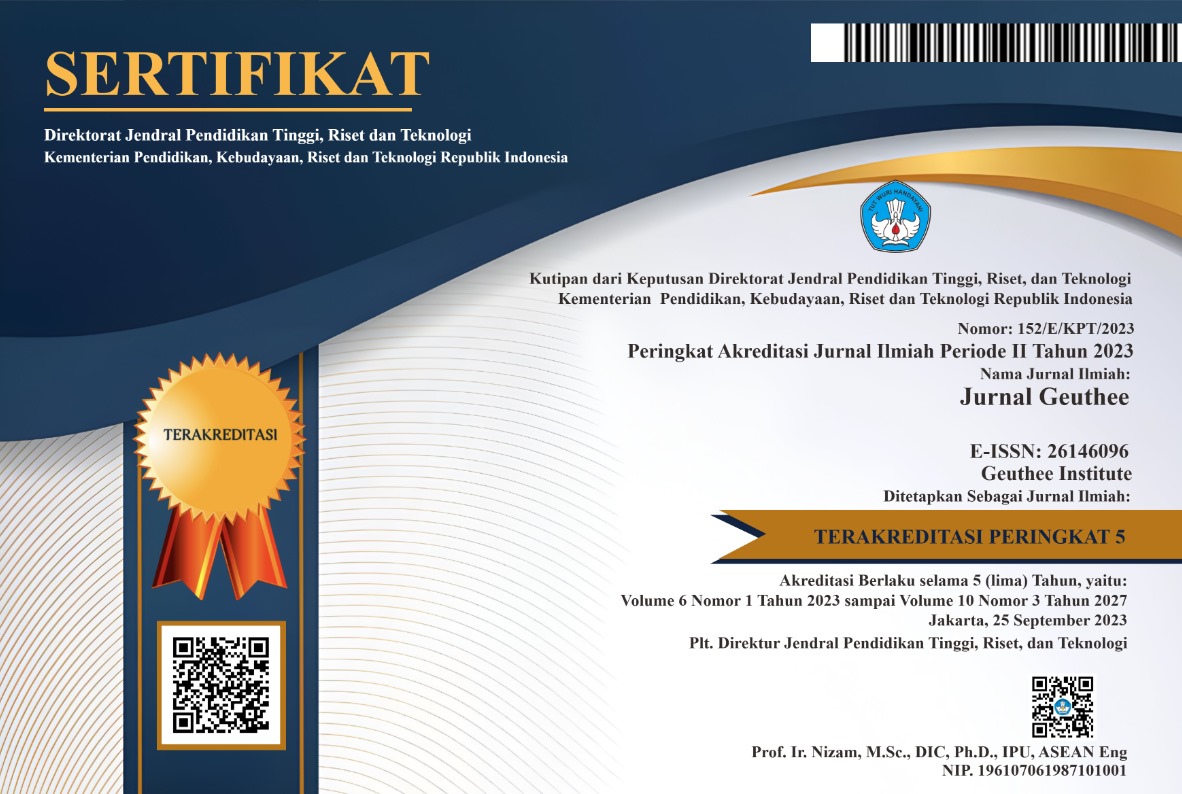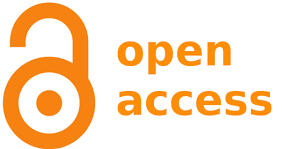Building the character of unity through a STEAM approach in elementary schools
Abstract
Using the STEAM approach in civics education in elementary schools is an idea to update students' skills in building a unified character by using STEAM in Civics. In particular, this study aims to analyze, study and explore the building of the character of unity using the STEAM approach in civics education in elementary schools. This study uses a qualitative literature study. After conducting the study, the researcher can confirm that building the character of unity in civics education in Elementary Schools by using the STEAM approach can be emphasized in two stages, namely 1) Strengthening civics education in STEAM-based Elementary Schools, 2) The character of the 3rd precept through STEAM in civics education in Elementary Schools . The conclusion of this study is that the STEAM approach in PPKn in Elementary Schools will begin to be applied, especially in facing the new normal era in the world of education.
Keywords
Full Text:
PDFReferences
Adha, M. M. (2019). Disertasi: PENGEMBANGAN KEADABAN KEWARGANEGARAAN MELALUI FESTIVAL KRAKATAU. Universitas Pendidikan Indonesia.
Anshori, I. (2017). Penguatan Pendidikan Karakter di Madrasah. Halaqa: Islamic Education Journal. https://doi.org/10.21070/halaqa.v1i2.1243
Atmojo, S. (2019). Peran Penguatan Pendidikan Karakter Dalam Menanggulangi Kekerasan Pada Lembaga Pendidikan. Buletin Jagaddhita.
Bureekhampun, S. (2020). STEAM education for preschool students: Patterns, activity designs and effects. Journal for the Education of Gifted Young Scientists, 8(3), 1201–1212. https://doi.org/10.17478/JEGYS.775835
Cheong, C. Y., & W.W., Y. T. (2017). Broad-based national education in globalisation: Conceptualisation, multiple functions and management. International Journal of Educational Management, 31(3), 265–279. https://doi.org/10.1108/IJEM-05-2016-0127
Damanhuri, D., Bahrudin, F. A., Legiani, W. H., & Rahman, I. N. (2016). IMPLEMENTASI NILAI-NILAI PANCASILA SEBAGAI UPAYA PEMBANGUNAN KARAKTER BANGSA. Untirta Civic Education Journal. https://doi.org/10.30870/ucej.v1i2.1890
Gronmo, L. S., Lindquist, M., Arora, A., & Mullis, I. V. S. (2016). TIMMS 2015 Mathematics Framework. TIMSS 2015 International Results in Mathematics.
HANAFI, H. (2018). HAKEKAT NILAI PERSATUAN DALAM KONTEKS INDONESIA (Sebuah Tinjauan Kontekstual Positif Sila Ketiga Pancasila). Jurnal Ilmiah Pendidikan Pancasila Dan Kewarganegaraan. https://doi.org/10.17977/um019v3i12018p056
Hau, N. H. (2020). Students and teachers’ perspective of the importance of arts in steam education in Vietnam. Journal of Critical Reviews, 7(11), 666–671. https://doi.org/10.31838/jcr.07.11.121
Hendriana, E. C., & Jacobus, A. (2017). IMPLEMENTASI PENDIDIKAN KARAKTER DI SEKOLAH MELALUI KETELADANAN DAN PEMBIASAAN. JPDI (Jurnal Pendidikan Dasar Indonesia). https://doi.org/10.26737/jpdi.v1i2.262
Hidayah, Y. (2020). Disertasi: PENGEMBANGAN MODEL BELAJAR KETERLIBATAN (MBK) UNTUK MEMPERKUAT PARTISIPASI POLITIK DAN CIVIC ENGAGEMENT WARGA NEGARA MUDA DI ERA DIGITAL. Universitas Pendidikan Indonesia.
Iskandar, R. (2019). PENGEMBANGAN MEDIA PEMBELAJARAN IPS BERBASIS KOMIK DI SEKOLAH DASAR. Jurnal Ilmiah Pendidikan Guru Sekolah Dasar, 3(2). https://doi.org/10.31326/jipgsd.v3i2.407
Kim, M. (2019). Analysis of elementary school teachers’ perceptions of mathematics-focused STEAM education in Korea. Eurasia Journal of Mathematics, Science and Technology Education, 15(9), 1–13. https://doi.org/10.29333/ejmste/108482
Lickona, T. (1991). Educating for Character, Mendidik untuk Membentuk Karakter. Bumi Aksara.
Moleong, L. J. (2011). Metodologi Penelitian Kualitatif Edisi Revisi. PT. Remaja Rosdakarya.
Mulyoto, G. P., & Samsuri, S. (2017). Pengaruh model project citizen dengan pendekatan saintifik terhadap penguasaan kompetensi kewarganegaraan dalam pembelajaran Pendidikan Pancasila dan Kewarganegaraan. Jurnal Civics: Media Kajian Kewarganegaraan. https://doi.org/10.21831/civics.v14i1.14566
Octavia, E., & Rube’i, M. A. (2017). Penguatan Pendidikan Karakter Berbasis Pancasila untuk Membentuk Mahasiswa Prodi PPKN Menjadi Warga Negara yang Baik dan Cerdas. Jurnal Pendidikan Sosial.
Oroszlan, D. (2007). Systems Thinking Skills and STEM Education.
S.Winataputra, U., & Dkk. (2014). Pembelajaran PKn di SD. Universitas Terbuka.
Santika, I. G. N., Rindawan, I. K., & Sujana, I. G. (2019). MEMPERKUAT PANCASILA MELALUI PERGUB NO. 79 TAHUN 2018 DALAM MENANGGULANGI PENGIKISAN BUDAYA DI ERA REVOLUSI INDUSTRI 4.0. I Gusti Ngurah Santika. Prosiding Seminar Nasional Inobali 2019.
Sapriya. (2014). Pendidikan IPS: Konsep dan Pembelajaran. PT.Remaja Rosda Karya Offset.
Sarah, H., & Chelsea, M. (2020). Out in the Field: Experiential Learning through University–Community Partnerships. In E. Sengupta, P. Blessinger, & C. Mahoney (Eds.), University–Community Partnerships for Promoting Social Responsibility in Higher Education (Vol. 23, pp. 121–135). Emerald Publishing Limited. https://doi.org/10.1108/S2055-364120200000023009
Sochacka, N. W. (2016). Learning Together: A Collaborative Autoethnographic Exploration of STEAM (STEM + the Arts) Education. Journal of Engineering Education, 105(1), 15–42. https://doi.org/10.1002/jee.20112
Sukmadinata, N. S. (2009). Metode Penelitian Pendidikan. Remaja Rosdakarya.
Sulistyarini. (2015). Pengembangan Karakter Berbasis Pancasila Melalui Pendidikan Kewarganegaraan. Jurnal Bhinneka Tunggal Ika.
Torlakson. (2014). Torlakson’s STEM Task Force Blueprint for California. TRELLISEDU, SAN FRANCISCO, CA, UNITED STATES.
Vicente, F. R. (2020). Curriculum analysis and design, implementation, and validation of a STEAM project through educational robotics in primary education. Computer Applications in Engineering Education. https://doi.org/10.1002/cae.22373
Winarny, J., Zubaidah, S., & H, S. K. (2007). STEM : Apa, Mengapa, dan Bagaimana - Pascasarjana. Pros. Semnas Pendidikan IPA Pascasarjana UM.
Yanzi, H., Adha, M. M., Hidayat, O. T., & Putri, D. S. (2019). Urgensi Nilai-Nilai Pancasila ebagai Dasar Pengembangan IPTEK Untuk Merespon Revolusi Industri 4.0. Repository.Lppm.Unila.Ac.Id.
Zed, M. (2004). Metode Penelitian Kepustakaan. Yayasan Obor Indonesia.
DOI: https://doi.org/10.52626/jg.v6i1.197
Refbacks
- There are currently no refbacks.
St. Teknik II, Reumpet, Krueng Barona Jaya sub-district (23370), Aceh Besar District, Aceh Province, Indonesia.
http://geutheeinstitute.com/








